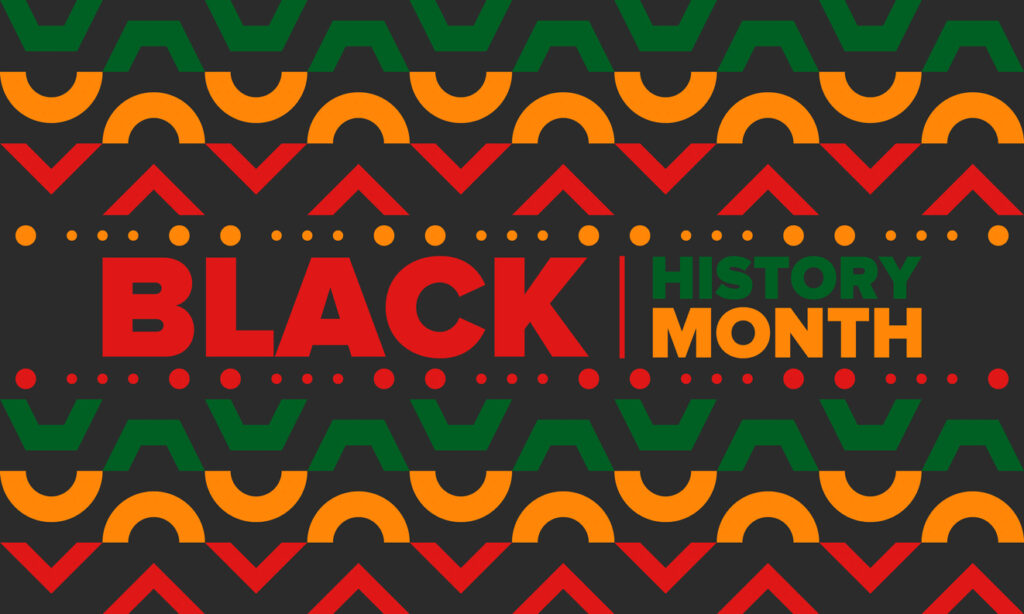I have conflicting feelings about how organisations manage Black History Month. And I’m sure I’m not alone.
In one breath, I see it as an opportunity for us to celebrate, share stories and raise the profiles of the most talented and brilliant black professionals. I see it as an earmark to acknowledge that many black professionals are overlooked, missed from mainstream curriculums, underrepresented, and excluded in the public eye and workplaces.
In another breath, it seems like another unavailing diversity initiative. A diversity initiative that organisations use as a sweetener but lacks the substance needed to help people establish why black people are missing from their senior boardroom tables, and a racial hierarchy in many organisations still exists.
So, my goal with this article is to amplify how companies can move along all diversity initiatives, including Black History Month, and view them as benchmarks that genuinely prompt organisational change and away from sweet-talking, awareness drives to simply attract talent, investors or customers.
Take stock of how many and which employees have been promoted within a particular time frame
Using awareness as a benchmark for change
Having an annual awareness month should be for just that, for your awareness.
Black History Month is an excellent opportunity for you to check in, review and evaluate what you and your organisation have achieved and what you’ll be doing in the next 12 months to recognise further and mend personal and professional disparity gaps.
A great approach is to take an honest, analytical look at how black professionals and employees are empowered at your workplace and how they are interviewed for roles at your company. Black History Month is an opportunity to create a 12-month action plan that measures and scales all employees’ performance enablement, especially ones whose experience may not mirror yours.
Taking stock of how many and which employees have been promoted within a particular time frame, how you managed disagreements and concerns and other valuable metrics that will give you a more holistic view from above to truly identify if simply being aware of diversity from a visual perspective is really enough to create a sense of inclusion at your workplace.
Empowerment and inclusion research
While there has been an influx of ‘diverse’ employees entering the workplace over the last five years, the trend of black people, in particular black women, not being offered the same opportunities for progression in UK organisations remains. According to Engaging Works, annual Empowerment research, only 57% of black women feel empowered at work. And the 2021 Inclusion Initiative report conducted by the London School of Economics (LSE) found evidence that managers are hiring candidates based on their own image despite increased diversity programmes across UK businesses.
Culture is the foundation of every environment, including your workplace.
Creating systems that help evaluate your company culture and identify whether your infrastructure is equipped to support different needs, expressions, and voices are essential.
“Inclusion is not bringing people into what already exists; it’s making a new space, a better space for everyone.” – George Dei
Continuing to view Black History Month as a side-hustle unworthy of entire investment will inevitably have a detrimental outcome on your relationship with your people and everyone’s mental wellbeing.
Emotional and financial investment
Another thing to focus on is how much expectation you or your company has on black employees and professionals to lead, organise and execute diversity initiatives such as Black History Month and employee resource groups. There must be an even deeper focus on the reward for the time and emotional labour that comes with these projects.
While an element of education will help companies effectively measure and maintain an inclusive culture, from those with firsthand experience of being black in the workplace, it can be easy to feel these individuals’ understanding and passion supersedes recognition and reward.
When done right, diversity initiatives take time, money, and effort from leaders and managers. Suppose your company goal is to create a culture that recognises and rewards hard work. In that case, these initiatives certainly fall under hard work, especially if individuals manage this work alongside their day-to-day jobs.
However, if the expectation is that black employees manage these initiatives alone, with a limited budget and no payment, an organisation is not genuinely advocating for them or their elevation. Continuing to view Black History Month as a side-hustle unworthy of entire investment will inevitably have a detrimental outcome on your relationship with your people and everyone’s mental wellbeing.
Acknowledgement and recognition
I founded Cultured Insights to help companies (particularly Startups) develop company cultures that organically help people within the team bring forward their actual purpose for their diversity initiatives. To assist with thinking beyond piling different people into a room and hoping for the best but to trigger substantive actions that help with taking the steps to truly integrate everyone into the fabric of their companies’ mission and vision.
Diversity and Inclusion are not simply having representation to give a competitive advantage but to accommodate and care for the people you work with and ensure they have the same opportunities for growth as you.
The way we should see Black History Month is an incentive to evolve beyond diversity showpieces and towards truly leveraging, uplifting, and paying people for their talents.
Black History Month is a benchmark to challenge ourselves to find actionable ways to help people perform at their best and give everyone the vision to reach CEO level.
Finally, I want to acknowledge and thank the UK Black Professionals in my network, whose continuous hard work inspires me. These people support everyone, and they have a knack for empowering and truly uplifting people beyond awareness days—their financial and emotional investment in transforming people from all demographics to become future leaders is second to none.
My deepest appreciations and thanks to:
Pamela Leonce, CEO of Stowhill Careers
Yinka Ewuola – Founder & Managing Director of Calla Success Systems
Jason Roberts CEO & Founder of Kaledia International
Michelle Gyimah Founder of Equality Pays
Felicia Linch, CEO at Kitch International
Carmen Morris CEO Kenroi Consulting
Mime Wallace CEO & HR Consultant of Tisam HR
Mildred Talabi Founder of Visible Women Tribe
Shanice Mears – Co-Founder & Head of Talent at The Elephant Room
Oz Alashe CEO & Founder of Cybsafe
Interested in this topic? Read Black History Month: In the face of adversity
[cm_form form_id=’cm_65a14c3f5da64′]








